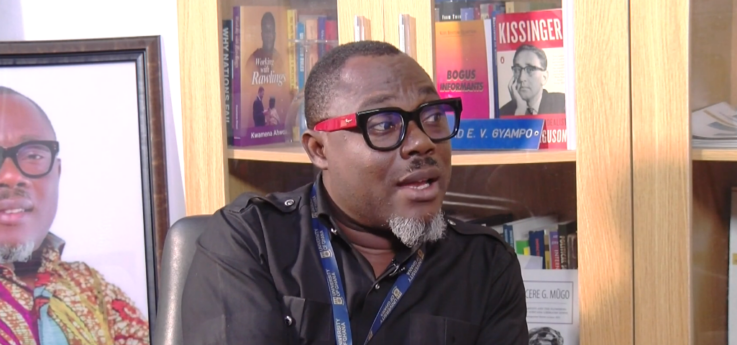Prof. Ransford Gyampo, a Political Science lecturer at the University of Ghana (UG), has raised concerns regarding the actions of the governing New Patriotic Party (NPP) in attempting to infiltrate the ranks of the University Teachers Association of Ghana (UTAG). This accusation comes in the wake of an ongoing strike by UTAG members who are advocating for government intervention to address pertinent issues related to illegal mining—a significant environmental concern that has been threatening Ghana’s water bodies and forest reserves. The strike reflects the association’s commitment to holding the government accountable for these pressing issues.
Recently, a faction within UTAG comprising both university teachers and non-teaching staff held a press conference to distance themselves from the ongoing industrial action. They dubbed themselves the “silent majority,” indicating that they do not support the strike and instead urge their colleagues to refrain from further escalation. Their stance signals a division within UTAG regarding how best to respond to the challenges posed by illegal mining. They emphasized that constructive efforts to combat illegal mining are currently underway and that the association should prioritize dialogue over disruption.
In an interview with Accra-based TV3, Prof. Gyampo expressed his concerns about potential manipulation by government officials. He alleged that members of the NPP have been attempting to sway certain UTAG members in their favor, aiming to weaken the cohesion of the association’s protest against the government’s inaction. He inferred that there appears to be a calculated strategy from the government to break the solidarity among UTAG members, thereby undermining their collective bargaining power.
Gyampo was cautious in his comments regarding his colleagues who may have aligned with the NPP’s agenda, as he sought to maintain collegial respect. He refrained from naming individuals involved but made it clear that he was aware of direct communications from Deputy Ministers and party officials, trying to influence UTAG’s position on the strike. His reluctance to fully expound on the issue reflects a concern for intrapersonal dynamics within the academic community, as well as a desire to avoid exacerbating existing conflicts.
The internal conflict within UTAG, as highlighted by Gyampo, points to broader tensions between government policy and the academic community’s operational autonomy. The government’s initiatives aimed at addressing illegal mining have had mixed results, with many academics believing that a more effective approach could be employed. For UTAG, the current strike serves as a mechanism to express discontent with the government’s policy measures while advocating for more stringent safeguards for the nation’s natural resources.
As the situation unfolds, the need for a united front among university teachers remains critical. The division highlighted by the presence of a “silent majority” calls into question the broader implications of political interference in academic institutions. The ongoing discourse around illegal mining not only impacts environmental preservation but also poses challenges for academic freedom and governance, making it imperative for UTAG to navigate these complexities judiciously. Gyampo’s critique of government attempts to influence UTAG’s position suggests that sustaining a clear and independent voice is essential for the association to effectively tackle the issues at hand and advocate for the future of Ghana’s environment.


